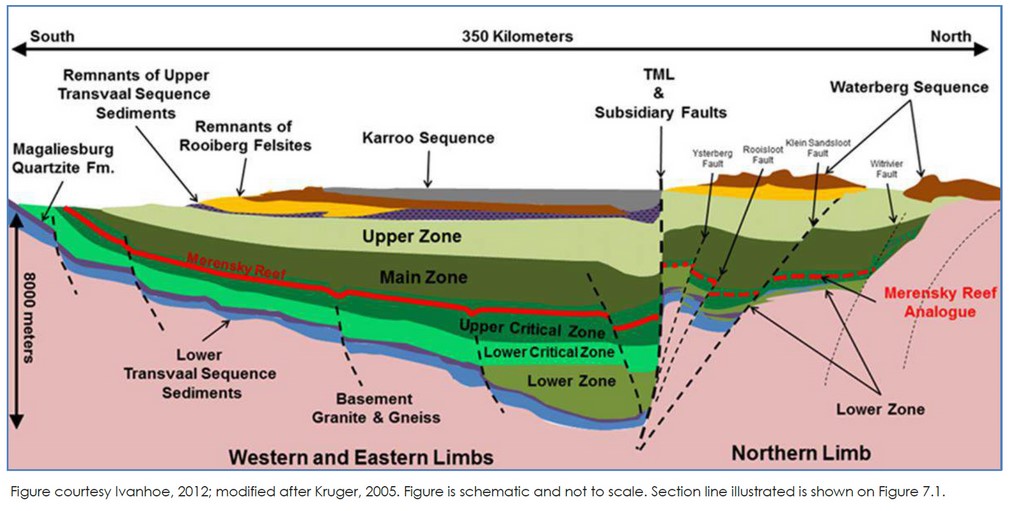What is a lopolite in geology ?
Lopolite : definition
A lopolite is a mass of plutonic rock in the shape of a large flattened lens, roughly in concordant with the structures of the surrounding area, hence the name "concordant mass" which is sometimes given to it.
Lopolites are commonly called mafic stratified complexes because of a very marked magmatic zonality, including ultrabasic terms at the base and basic terms at the top. They contain the world's largest reserves of chromium, nickel and platinum in the world.
The largest lopolite in the world, the Bushveld complex in South Africa (schematized section below), stretches nearly 400 km long with a thickness exceeding 12 km (which gives it the appearance of a very, very flat lens). It is pierced with dozens of chrome, vanadium and platinum mines, which are among the most important in the world.
Lopolites are commonly called mafic stratified complexes because of a very marked magmatic zonality, including ultrabasic terms at the base and basic terms at the top. They contain the world's largest reserves of chromium, nickel and platinum in the world.
The largest lopolite in the world, the Bushveld complex in South Africa (schematized section below), stretches nearly 400 km long with a thickness exceeding 12 km (which gives it the appearance of a very, very flat lens). It is pierced with dozens of chrome, vanadium and platinum mines, which are among the most important in the world.

